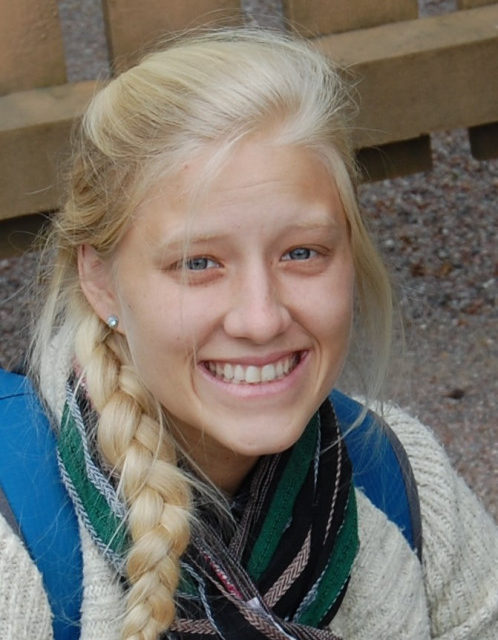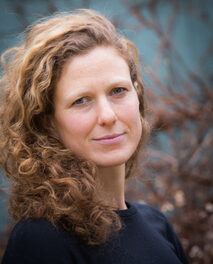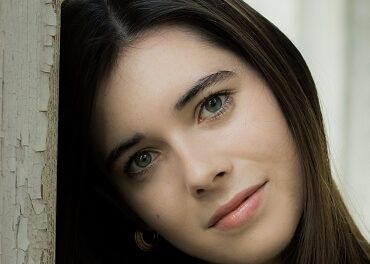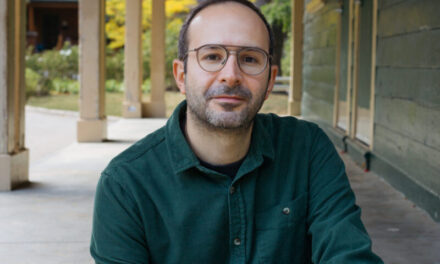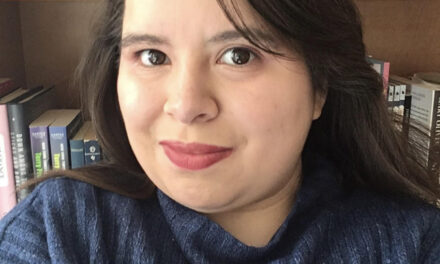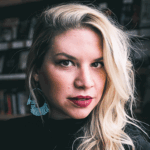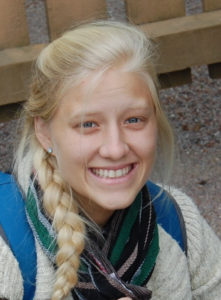
Assistant Editor Sakinah Hofler: In “Eid al-Adha” (meaning: The Festival of Sacrifice), Latifa Ayad states: “My identity as a Muslim was linked inextricably to food, to Ramadan, the long days of self-denial, the nights of eating too much too fast.” What happens, then, to that identity when one becomes vegan? In less than 500 words, Ayad’s sweeping essay takes us from the speaker’s mother’s baklava to the rams sacrificed on the family’s farm to the “grapey surface” of a “dissected sheep’s eye,” all the while probing and questioning culture, the self, religion, and responsibility.
Eid al-Adha
In the days and years that followed the turning of the tides against Muslims in America, I talked mostly about food. My identity as a Muslim was linked inextricably to food, to Ramadan, the long days of self-denial, the nights of eating too much too fast. In every culture we say the quickest way to the heart is through the stomach. I described our Ramadan meals in loving detail: my mom’s baklava—crisp phyllo dough, orange-blossom syrup. Her fasoolia and her couscous. In later years, her vegan tacos: gritty, spicy, and American. To many, the two identities, vegan and Muslim, could not make sense, as if I had two religions. In some ways it was true: veganism was a conversion.
Like Christianity, Islam teaches that God’s animals are made for our use. While I spoke about food, my dad spoke about Jesus. That the Qur’an has the same stories as the Bible and Torah was his argument for why people shouldn’t hate Muslims. We are the same, he said. We believe in Jesus too. In the Qur’an, like in the Bible story of Abraham, Ibrahim goes to kill his son and God responds by turning him into a sheep. Thus we sacrifice rams for Eid al-Adha. I am told in Saudi it’s more common now to sacrifice money, a donation of a sum specified by the caliphate to feed the poor. But in America we are real Muslims, there is no room to wiggle, because with the world watching, telling you, you are the other now, you must be. On our small farm we raised sheep throughout the year, and on Eid al-Adha hundreds of Muslims came to perform the sacrifice, stamping our grass and sneaking cigarettes behind the barn. Women cleaned strings of intestine with sticks and water, twined them in their fingers like yarn. As a child, a not-yet-vegan Muslim, I learned anatomy, the scent of stomach bile, that all God’s creatures have a heart. Some kids cupped the heart in both hands, but I was only brave enough to poke it with a finger.
When it was time for a family to “do” their ram, the man of the family left his mint tea, his plate of coiled Turkish sweets, and hid the knife he had already sharpened behind his back. A mercy to the animal, so it did not know it was going to death, though with the hundreds going before it, how could it not? I watched the blood drain into a hole in the ground, making a soupy black mud. I watched the rolling eyes. In high-school biology we dissected sheep’s eyes, and I squeezed the grapey surface between my fingers and thought, “I know you.” Maybe it’s absurd to claim to know every sheep, but I feel that I do—what they look like when they give birth, when they’re born, when they die. I have known them like God intended: inside, out, the taste of stringy flesh in my mouth.
Latifa Ayad is a winner of the Masters Review Flash Fiction Prize, and the Indiana Review 1/2K Prize. In 2018 she was awarded a MacDowell Fellowship. Her piece “Arabic Lesson” was selected for Best American Nonrequired Reading 2019. She is hard at work on her debut novel The Realm Unknown, which was named a runner-up for the James Jones First Novel Fellowship. For a complete list of her published works visit latifaayad.wordpress.com.
For more miCRo pieces, CLICK HERE

